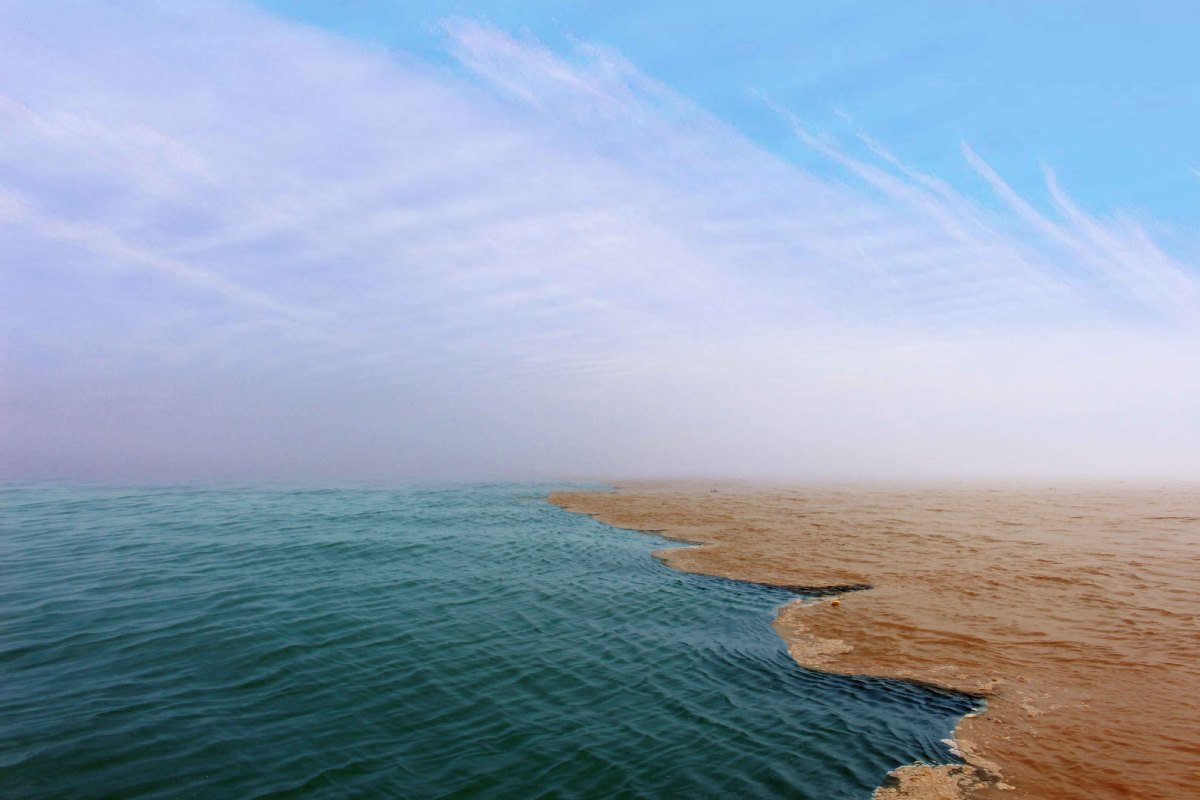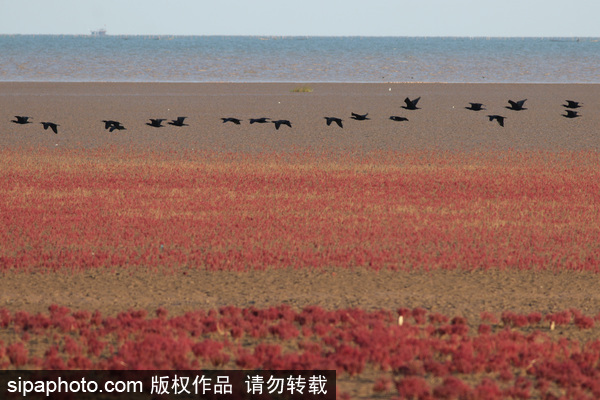The Yellow River Estuary Ecological Scenic Area, Shandong province

The Yellow River Estuary Ecological Scenic Area, Shandong province
(黄河口生态旅游区 huáng hé kǒu shēng tài lǚ yóu qū)
Location: Huanghekou town, Dongying city, Shandong province
Websites: en.hhkstlyq.com/(En)
www.hhkstlyq.com/(Cn)
Scenic Spot Level: AAAAA
Opening Hours: 8:00-17:00
Ticket Price:
Peak season (Apr 1-Nov 30): 60 yuan ($8.52)/person
Off season (Dec 1-Mar 31): 40 yuan/person
Notes:
1. Minors aged six to 18, children above 140 centimeters in height and full-time undergraduate students and below(excluding graduate students, short-term training students, and adult continuing education students) can receive a half-price discount on production of a valid ID certificate.
2. Children who are 140 cm and below in height, people with disabilities, and seniors aged 60 or above can receive free tickets on production of a valid ID certificate.
3. Group tours can enjoy a 20 percent discount.
4. The times for bird-releasing activities are determined by the season and weather conditions, and are usually at 10:00, 11:00, 14:30 and 15:30 for cranes, and 10:30 and 15:00 for wild geese.
The above information is for reference only. Please refer to the latest notice.

The Yellow River Estuary Ecological Scenic Area was created in conjunction with Shandong Yellow River Delta National Nature Reserve. It is located at the estuary of the Yellow River, where the river meets the sea, and features an ecological wetland, rare and endangered birds, a coastal beach landscape and unique ecological tourism resources. There is also oil industry infrastructure in the area. The nature reserve covers 1,530 square kilometers and includes the world's widest - and youngest - wetland ecosystem.
This is where the Yellow River runs into the sea, carrying a large amount of sediment from the area into the Bohai Sea, extending the coastline by about two km into the sea every year, with an annual increase in area of 13.8 sq km. The land created by the great river is hailed as "the youngest land in the country". At its intersection, the magnificent Yellow River embraces the blue sea, creating a spectacular sight.
This area is like an international airport for birds. It is rich in bird habitat, and is home to many rare and endangered birds -a total of 368 species. There are 12 species of first-class national protected birds, such as the red-crowned crane and the oriental white stork, and 51 species of second-class national protected birds, such as gray-crowned crane and whooper swan. The area is known as an important transit station in winter and a breeding habitat for migratory birds in the Northeast Asia inland area and the west Pacific Ocean. It is also known as the home of the Chinese oriental white stork and the Chinese black-headed gull.
This is the largest "newborn" coastal natural vegetation area in China. There are more than 393 species of plants, including 277 wild seed plant species, such as robinia pseudoacacia, salix psammophila, tamarix, phragmites australis, and suaeda salsa. Moreover, there are 43 sq km of second-class national protected wild soybean, 270 sq km of natural reeds, 120 sq km of natural grassland, 150 sq km of natural tamarix shrubs, with vegetation coverage of about 55 percent.
There are thousands of hectares of suaeda salsa (dubbed "red carpet" for it turns crimson in early autumn) and the largest artificial black locust forests in the North China Plain. It is the best place to study the formation, evolution and development of newborn wetland ecosystems in estuaries in the world. The three wonders – river-sea intersection, newborn wetland and wild birds – are globally unique tourism resources.
The area has been honored as an international-class wetland, a national demonstration nature reserve, a national 5A scenic area, a national forest park, a national geological park, a top-ten cultural tourism destination in Shandong province, and one of the six most beautiful wetlands in China.

Last Updated: Apr 26, 2020




